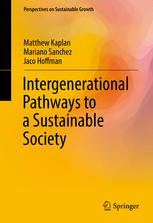

Most ebook files are in PDF format, so you can easily read them using various software such as Foxit Reader or directly on the Google Chrome browser.
Some ebook files are released by publishers in other formats such as .awz, .mobi, .epub, .fb2, etc. You may need to install specific software to read these formats on mobile/PC, such as Calibre.
Please read the tutorial at this link: https://ebookbell.com/faq
We offer FREE conversion to the popular formats you request; however, this may take some time. Therefore, right after payment, please email us, and we will try to provide the service as quickly as possible.
For some exceptional file formats or broken links (if any), please refrain from opening any disputes. Instead, email us first, and we will try to assist within a maximum of 6 hours.
EbookBell Team

0.0
0 reviewsThis volume explores intergenerational practices and their impact on social sustainability, with an emphasis on developing programmatic efforts to address profound social challenges such as underperforming educational and work-related systems, failing support systems for dependent or vulnerable populations, and community renewal and regeneration efforts. To this end, the core argument is to present issues related to age, aging, and generations, not only as problems, but as catalysts to facilitate improved quality of life for all generations.
For societies to be sustainable, all generations must coexist at any given time and across time (non-contemporary generations). Hence, the ultimate vision presented here is one of intergenerational sustainability as both a conceptual tool and as a call for action. Intergenerational pathways are introduced as strategies for improving health and well-being across the lifespan, strengthening families, improving under-performing educational and work-related systems, and helping to build more cohesive, caring communities.
Reviewing some of the historical factors and developments influencing intergenerational studies, as well as presenting regional case studies and comparative research, this book presents successful models that may be applied to everyday multigenerational practices in institutions such as education, family life, housing, healthcare, employment, and community development. The result is an accessible resource for students, academics, policymakers, community leaders, and citizens concerned with creating opportunities amidst challenging demographic and social changes.